| Listing 1 - 9 of 9 |
Sort by
|
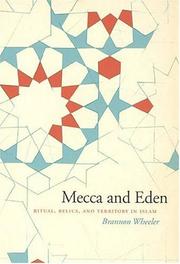
ISBN: 0226888045 0226888037 Year: 2006 Publisher: Chicago : University of Chicago Press,
Abstract | Keywords | Export | Availability | Bookmark
 Loading...
Loading...Choose an application
- Reference Manager
- EndNote
- RefWorks (Direct export to RefWorks)
Nineteenth-century philologist and Biblical critic William Robertson Smith famously concluded that the sacred status of holy places derives not from their intrinsic nature but from their social character. Building upon this insight, 'Mecca and Eden 'uses Islamic exegetical and legal texts to analyze the rituals and objects associated with the sanctuary at Mecca. Integrating Islamic examples into the comparative study of religion, Brannon Wheeler shows how the treatment of rituals, relics, and territory is related to the more general mythological depiction of the origins of Islamic civilization. Along the way, Wheeler considers the contrast between Mecca and Eden in Muslim rituals, the dispersal and collection of relics of the prophet Muhammad, their relationship to the sanctuary at Mecca, and long tombs associated with the gigantic size of certain prophets mentioned in the Quran. 'Mecca and Eden' succeeds, as few books have done, in making Islamic sources available to the broader study of religion.
Islam --- Islamic civilization --- Civilisation islamique --- Rituals. --- Rituel --- Mecca (Saudi Arabia) --- La Mecque (Arabie Saoudite) --- Description and travel --- Descriptions et voyages --- Civilization, Islamic. --- Islamic civilization. --- Islamic reliquaries. --- Reliquaries, Islamic.
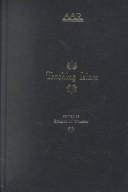
ISBN: 1280837667 0195348516 9780195348514 0195152247 9780195152241 9780195152258 0195152255 0195152255 0197741371 Year: 2003 Publisher: New York : Oxford University Press,
Abstract | Keywords | Export | Availability | Bookmark
 Loading...
Loading...Choose an application
- Reference Manager
- EndNote
- RefWorks (Direct export to RefWorks)
Despite the importance of Islam in global affairs and the role of Islamic Studies in Religious Studies, little attention has been given to the basic questions of how Islam should be taught. This volume brings together a number of leading scholars of Islamic Studies with rich experience in teaching Islam in a diversity of undergraduate settings, from large public universities to small private colleges. Topics addressed include Islamic law, the Quran, Sufism, women in Islam, Islam in America, and teaching about Islam through Arabic literature and the use of new information technology.
Islam --- Islamic studies --- Study and teaching.
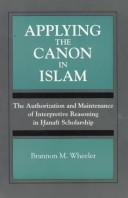
ISBN: 0585043426 9780585043425 0791429733 0791429741 1438423950 Year: 1996 Publisher: Albany State University of New York Press
Abstract | Keywords | Export | Availability | Bookmark
 Loading...
Loading...Choose an application
- Reference Manager
- EndNote
- RefWorks (Direct export to RefWorks)
Islamic law --- Hanafites --- Authority --- Law, Politics & Government --- Canon Law --- Hanafis --- Islamic sects --- Political science --- Authoritarianism --- Consensus (Social sciences) --- Uṣūl al-fiqh (Islamic law) --- Authority (Islam) --- Consensus (Islam) --- Ijmāʻ (Islam) --- Interpretation and construction. --- History. --- Religious aspects --- Islam. --- Interpretation and construction --- History --- Islam --- Uṣūl al-Fiqh
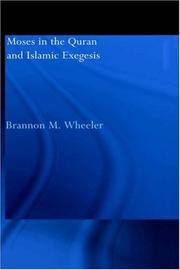
ISBN: 9781136128905 1136128905 9780203037454 0203037456 0700716033 9780700716036 1283965844 9781136128981 9781136129063 9780415554183 1136128980 Year: 2002 Publisher: London New York RoutledgeCurzon
Abstract | Keywords | Export | Availability | Bookmark
 Loading...
Loading...Choose an application
- Reference Manager
- EndNote
- RefWorks (Direct export to RefWorks)
Relating the Muslim understanding of Moses in the Qur'an to the Epic of Gilgamesh, Alexander Romances, Aramaic Targums, Rabbinic Bible exegesis, and folklore from the ancient and medieval Mediterranean, this book shows how Muslim scholars authorize and identify themselves through allusions to the Bible and Jewish tradition. Exegesis of Qur'an 18:60-82 shows how Muslim exegetes engage Biblical theology through interpretation of the ancient Israelites, their prophets, and their Torah. This Muslim use of a scripture shared with Jews and Christians suggests fresh perspectives for the history of re
Book
ISBN: 100905399X 1009063324 100906312X 1316511863 Year: 2022 Publisher: Cambridge : Cambridge University Press,
Abstract | Keywords | Export | Availability | Bookmark
 Loading...
Loading...Choose an application
- Reference Manager
- EndNote
- RefWorks (Direct export to RefWorks)
Islam is the only biblical religion that still practices animal sacrifice. Indeed, every year more than a million animals are shipped to Mecca from all over the world to be slaughtered during the Muslim Hajj. This multi-disciplinary volume is the first to examine the physical foundations of this practice and the significance of the ritual. Brannon Wheeler uses both textual analysis and various types of material evidence to gain insight into the role of animal sacrifice in Islam. He provides a 'thick description' of the elaborate camel sacrifice performed by Muhammad, which serves as the model for future Hajj sacrifices. Wheeler integrates biblical and classical Arabic sources with evidence from zooarchaeology and the rock art of ancient Arabia to gain insight into an event that reportedly occurred 1400 years ago. His book encourages a more nuanced and expansive conception of "sacrifice" in the history of religion.
Sacrifice --- Animal sacrifice --- Islam --- ʻĪd al-Aḍḥā --- History. --- Rituals. --- Fasts and feasts --- Eid al-Adha --- Feast of Sacrifice (Islam) --- Great Festival (Islam) --- ʻĪd al-Kabīr --- ʻĪd al-Naḥr --- ʻĪd al-Qurbān --- Major Festival (Islam) --- Sacrifice, Feast of (Islam) --- Sacrificial Feast (Islam) --- Sharia (Islamic religious practice) --- Worship --- Burnt offering
Book
ISBN: 9781009053990 9781316511862 9781009054744 1316511863 100905399X 1009063324 Year: 2022 Publisher: Cambridge Cambridge University Press
Abstract | Keywords | Export | Availability | Bookmark
 Loading...
Loading...Choose an application
- Reference Manager
- EndNote
- RefWorks (Direct export to RefWorks)
"Islam is the only biblical religion that still practices animal sacrifice. Indeed, every year more than a million animals are shipped to Mecca from all over the world to be slaughtered during the Muslim Hajj. This multi-disciplinary volume is the first to examine the physical foundations of this practice and the significance of the ritual. Brannon Wheeler uses both textual analysis and various types of material evidence to gain insight into the role of animal sacrifice in Islam. He provides a "thick description" of the elaborate camel sacrifice performed by Muhammad, which serves as the model for future Hajj sacrifices. Wheeler integrates biblical and classical Arabic sources with evidence from zooarchaeology and the rock art of ancient Arabia to gain insight into an event that reportedly occurred 1400 years ago. His book encourages a more nuanced and expansive conception of "sacrifice" in the history of religion"--
Sacrifice --- Animal sacrifice --- Islam --- ʻĪd al-Aḍḥā
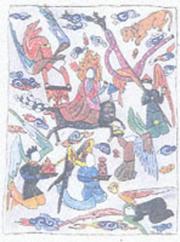
ISBN: 9780826449573 0826449573 9780826449566 0826449565 Year: 2002 Publisher: London Continuum
Abstract | Keywords | Export | Availability | Bookmark
 Loading...
Loading...Choose an application
- Reference Manager
- EndNote
- RefWorks (Direct export to RefWorks)
Digital
ISBN: 9781009053990 Year: 2022 Publisher: Cambridge Cambridge University Press
Abstract | Keywords | Export | Availability | Bookmark
 Loading...
Loading...Choose an application
- Reference Manager
- EndNote
- RefWorks (Direct export to RefWorks)
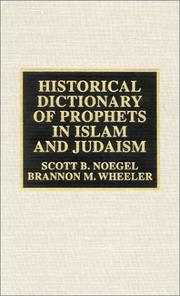
ISBN: 0810866102 9780810866102 0810843056 9780810843059 Year: 2002 Publisher: Lanham, MD
Abstract | Keywords | Export | Availability | Bookmark
 Loading...
Loading...Choose an application
- Reference Manager
- EndNote
- RefWorks (Direct export to RefWorks)
Both traditions recognize and draw theological and historical lessons from some of the same narrative sources, but this is the first comparative resource to provide interdisciplinary coverage of the history and textual sources associated with prophets and prophecy. This thorough treatment of a difficult and increasingly controversial subject area will encourage and cultivate knowledge and understanding.
Prophecy --- Prophets --- Minor prophets --- Prophethood --- Seers --- Persons --- Forecasting --- Judaism --- Islam --- Dictionaries --- Biography --- dictionary
| Listing 1 - 9 of 9 |
Sort by
|

 Search
Search Feedback
Feedback About UniCat
About UniCat  Help
Help News
News